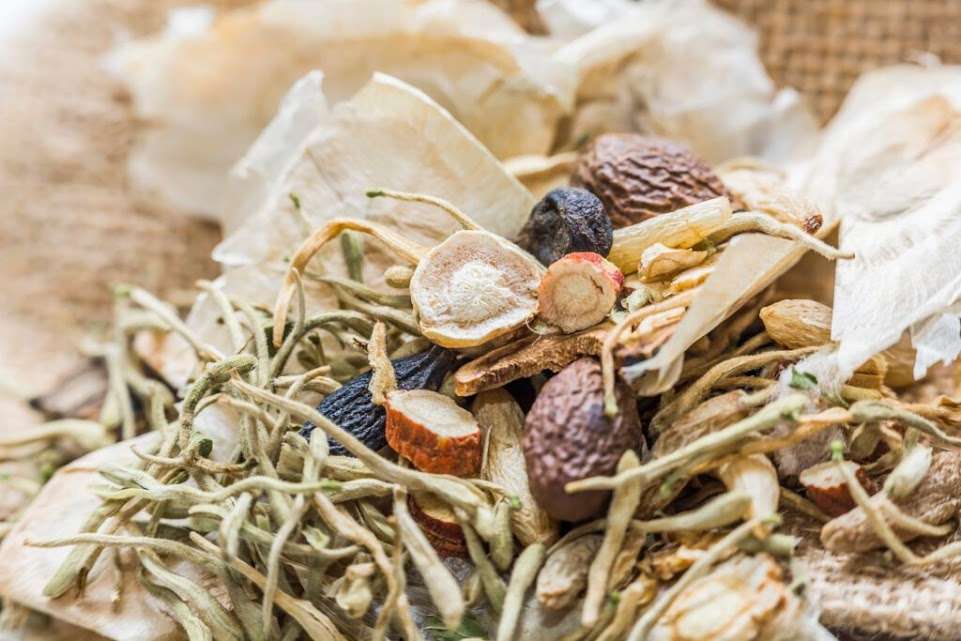
Adaptogens are a class of natural herbs, roots, and mushrooms that assist the body in adapting to stressors in the environment. These stressors can stem from challenges at work, relationship difficulties, parenting responsibilities, and can manifest as chronic stress, anxiety, sleep disturbances, lack of focus, and constant fatigue. Known for their ability to restore equilibrium in the mind and body, adaptogens play a crucial role in enhancing overall mental health and well-being.
With a longstanding history dating back to ancient Ayurvedic texts in 1,000 BCE, adaptogens have been utilized across diverse cultures. From Chinese Emperors using them for vitality and longevity around 100 BCE to the Ancient Greeks and Romans seeking balance and stress relief. While their recent surge in popularity has been tied to their use in coffee replacement mushroom powders and post-workout drinks, the benefits of adaptogens extend far beyond caffeine replacement and muscle recovery. They have shown efficacy in improving mental state, reducing inflammation, boosting immunity, and promoting longevity.
How do they work?
Adaptogens function by calming our sympathetic nervous system(1), which is responsible for triggering our fight-or-flight response. In times of heightened stress, this response is activated. However, in modern lifestyles, we have no place to run to and fighting/conflict is not always the best option. Our fight-or-flight mode can be constantly activated, leading to a continuous release of stress hormones like cortisol and adrenaline. This prolonged state can exert strain on both the body and mind, resulting in conditions such as anxiety, mood fluctuations, fatigue, chronic pain, and inflammation. Adaptogens are renowned for their ability to rebalance these hormone levels

Adaptogenic herbs
Adaptogens offer a sustainable approach to developing long-term resilience against stress. Unlike substances like melatonin and caffeine, which may cause short-term hormone disruptions, adaptogens gradually accumulate their stress-relieving benefits in the body over time. Melatonin and caffeine, for instance, can lead to unwanted effects from disruptions in our natural melatonin, testosterone, oestrogen and cortisol production, exacerbating sleep and fatigue issues. It is recommended to incorporate adaptogens into your daily routine for a minimum of 6 weeks to experience their full effectiveness.
Prominent adaptogens include:
Ashwagandha
Known for reducing stress, anxiety, and promoting mental calmness, along with offering anti-inflammatory, antioxidant, and immunity-boosting properties.
Korean Ginseng
Combats fatigue, enhances energy levels, improves physical endurance, boosts immunity, and enhances cognitive function and focus.
Cordyceps
A valued medicinal mushroom in traditional Chinese Medicine, known for its energy-boosting, stamina-enhancing, immune-supporting, and inflammation-reducing qualities.
Lion’s Mane
Another prized medicinal mushroom recognized for its neuroprotective attributes, particularly aiding memory, focus, cognitive performance, and digestive health support.
Schisandra
A Chinese berry celebrated for enhancing mental clarity, immunity, and liver health, known for its potent antioxidant and anti-inflammatory characteristics.
Maca Root
Utilized to enhance stamina, endurance, and vitality, while also supporting hormonal balance in both men and women by boosting fertility and libido.
Conclusion
Stress-related disorders are on the rise in Hong Kong’s fast-paced environment and prioritising the health and mental well-being of our families has become increasingly crucial. Adaptogens present a natural, long-term remedy for improving our physical and mental well-being. They work by combating stress and anxiety, enhancing sleep quality and boosting our energy levels and cognitive performance. Adaptogens can be easily incorporated into our daily routine through food or beverages and are recommended to be consumed over a minimum of 6 weeks for maximum efficacy.
Photo Credits:
First image: freepik
Second image: freepik
References
Dr Axe, J. (2024). 12 Adaptogens to Balance, Restore and Protect the Body. Dr. Axe. https://draxe.com/nutrition/adaptogenic-herbs-adaptogens/#:~:text=1.,performance%20in%20healthy%20young%20adults.
Pelc, C. (2023). How accurate are the claims about ashwagandha’s benefits?
Medical News Today. https://www.medicalnewstoday.com/articles/how-accurate-are-the-claims-about-ashwagandhas-benefits
Chesak, J. (2022). The No BS Guide to Adaptogens for Hormonal Balance and Stress. https://www.healthline.com/health/stress/smart-girls-guide-to-adaptogens
Cleveland Clinic. (2022) Adaptogens. Cleveland Clinic. https://my.clevelandclinic.org/health/drugs/22361-adaptogens
Chen, F. (2024). Over half of Hongkongers experience depression, highest level in 7 years: survey. https://www.scmp.com/news/hong-kong/article/3291403/over-half-hongkongers-experience-depression-highest-level-7-years-survey

Jing Chan
About the author
Recently Added
Adaptogens are a class of natural herbs, roots, and mushrooms that assist the body in adapting to stressors in the environment. These …
The journey of raising children comes with countless moments where they need our support and guidance. Whether our children are typically developing …
The World Infant, Child and Adolescent Mental Health Day was first initiated to highlight the importance of mental health, starting from the …




